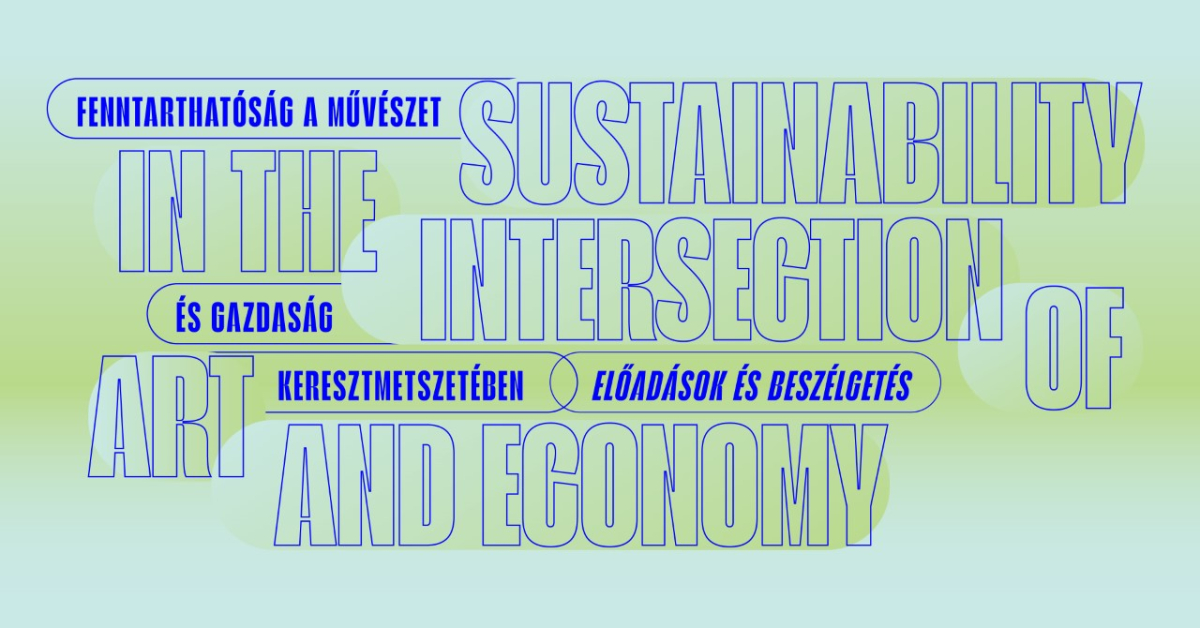On 14 September 2022, the Ludwig Museum and the BC4LS Centre (Budapest Centre for Long-Term Sustainability) will launch a series of lectures with the title Sustainability at the Crossroads of Art and Economy with a special international guest. Dr. Eike Schmidt, Director of the Uffizi Gallery in Florence, will talk about the innovative initiatives that have fundamentally changed the way the world-famous gallery operates in recent years. The sale of the non-fungible tokens (NFT) copies of Michelangelo and Botticceli’s works in 2020 shocked the world. By now the world’s major museums have created their own NFT platforms, starting a new trend. Péter Fáykiss, Director of the Digitalisation Directorate of the Hungarian National Bank, approaches this new trend from the perspective of the digitalisation challenges of the financial world, as the Hungarian National Bank was the first central bank in the world to create a dedicated NFT issuing platform within the framework of the Money Museum mobile application. Sustainability, dialogue and shared value creation will be the guiding themes of the event. The roundtable discussion following the presentations will be moderated by Dr. Melanie Kay Smith (PhD), Associate Professor, Researcher and Consultant.
Museums and NFTs: Will There Be Spring after the Crypto Winter?
Dr. Eike Schmidt, igazgató Uffizi Képtár, Firenze / Director, Uffizi Gallery, Florence
Dr Eike Schmidt, German art historian, is in his second term at the Uffizi Gallery in Florence, the first non-Italian director in the museum’s 250-year history. He previously held positions at the J. Paul Getty Museum in California and the National Gallery of Art in Washington, DC. In just a few years, he has transformed one of the world’s oldest museums into a progressive institution capable of renewal. With Tuscany’s past, present and future in mind, Dr. Schmidt’s latest project, ‘Uffizi Diffusi’, expands the museum’s reach by loaning artworks to smaller galleries throughout the region. ‘Uffizi Diffusi’ makes artworks that are impossible to access in the overcrowded museum accessible. Yet now the world’s attention has been captured by the sale of one of the museum’s major works, an NFT version of Michelangelo’s Tondo.
At the Forefront of Innovation: Central Bank of Hungary’s NFT Issuance Platform
Fáykiss Péter, igazgató / Director, Magyar Nemzeti Bank Digitalizációs Igazgatóság
To explore the viability of the technology behind NFTs, the cCentral bBank of Hungary (Magyar Nemzeti Bank, MNB) has launched the MNB Money Museum mobile application , whichthat provides a dedicated, private blockchain-based, NFT (Non-Fungible Token) issuance platform, which can be considered as a novelty among central banks. The MNB Money Museum mobile application generally focuses on two main functionalities: (i) to provide a new channel for displaying useful content related to the Money Museum and enhance the interactive museum experience; (ii) to test blockchain-based technology based on NFT issuance and commemorative coin registration.
Péter Fáykiss graduated from Corvinus University of Budapest in 2009. Since 2009 he worked at the MNB, where he was the member of a group analysing domestic effects of the European implementation of Basel III regulation. In 2013 he became the Deputy Head of Division for Financial Regulations of Ministry for National Economy, where he was mainly responsible for the domestic implementation of the European regulatory package CRD IV and for the preparation of the new Hungarian Banking Act. In 2014 he was appointed as the Head of Macroprudential Policy Department of the MNB, from 2017 he served as its director. From 2019 he is the Director of Digitalization Directorate at the MNB. Since 2009, he has been a regular speaker at various professional forums and university and college courses.
The Ludwig Museum – Museum of Contemporary Art has committed itself to a long-term strategy of sustainability, based on the processes of the present and the experiences of the past. In recent times, it has become clear, especially in the context of the pandemic, that the institution will be able to provide progressive representation and contribute as a proactive platform within the contemporary art scene in a spirit of sustainability and innovation. In our initiatives, the emphasis is on collaboration, as the best solutions are born out of joint thinking.
The BC4LS European Centre for Research and Education, established by the Pallas Athéné Domus Meriti Foundation and the János Neumann University, is co-organising and supporting the series. Their mission is to promote the common interest in long-term sustainability and development and to harness the creative potential of international knowledge sharing.
Programme date: Wednesday, 14 September 2022, 16:00– 17:30
Venue:1st floor Lecture Hall, Ludwig Museum
The programme is free of charge, but registration is required.
The programme is in English, simultaneous interpretation will be provided.
The presentations will be followed by a round table discussion, during which members of the audience can ask the speakers their questions.


